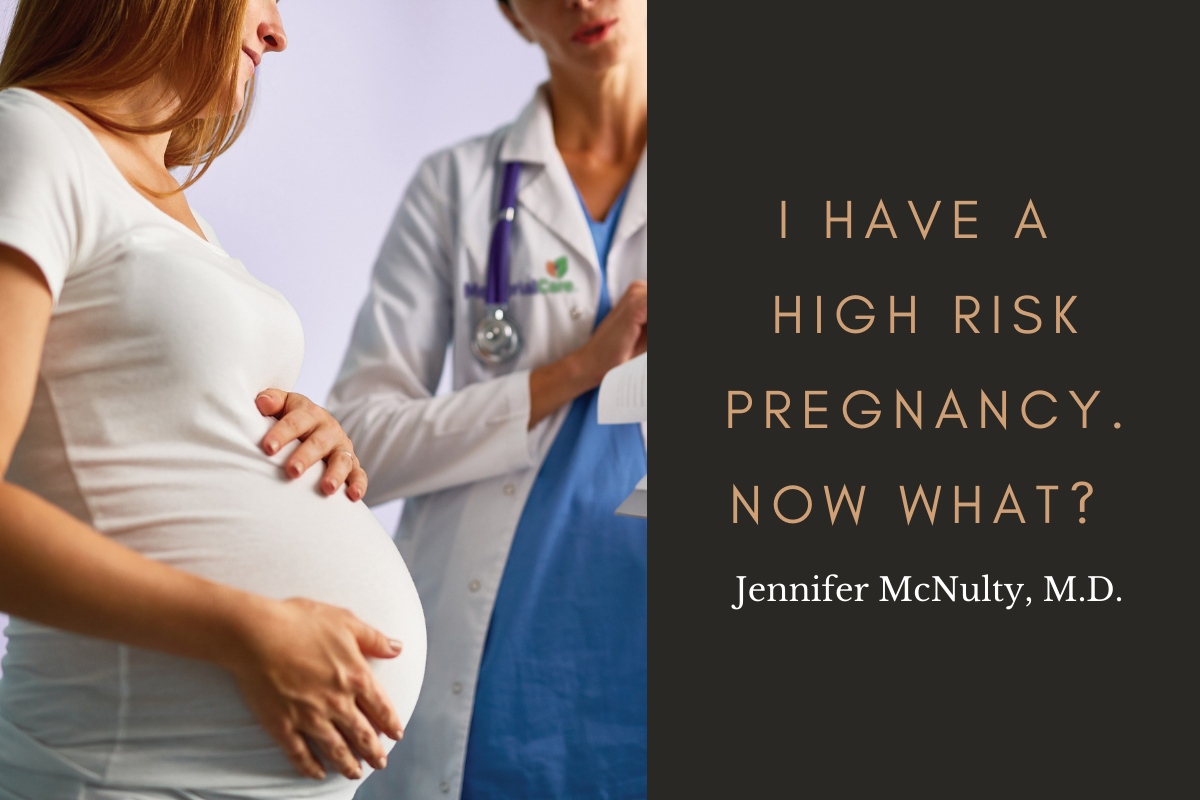I Have A High Risk Pregnancy. Now What?
I Have A High-Risk Pregnancy. Now What?
By: Jennifer McNulty, M.D., maternal-fetal medicine specialist, Cherese Mari Laulhere BirthCare Center, MemorialCare Miller Children’s & Women’s Hospital Long Beach
Each year, nearly 4 million babies are born in the United States. Most women experience a routine pregnancy. However, some women experience medical difficulties, making their pregnancy high-risk. Some conditions that make a pregnancy high risk may be known before pregnancy, such as chronic hypertension, diabetes, or epilepsy, while others may develop during pregnancy. When a pregnancy is deemed “high-risk,” a physician will pay closer attention to the pregnancy, since mom and baby are at an increased risk for complications.
Conditions that make a pregnancy high risk can include:
- Pre-existing health problems, such as diabetes, obesity, or high blood pressure
- Use of alcohol, illegal drugs, or tobacco
- The mother’s age (younger than 17 or over 35)
- Multiple babies (i.e., twins or triplets)
- Multiple prior miscarriages
- The baby being diagnosed with a genetic condition, poor growth, or a physical malformation
- Development of preterm labor or pre-eclampsia
- Abnormal location of the placenta, especially with a previous cesarean section delivery
- Problems during a previous pregnancy
To keep a better eye on a high-risk pregnancy, a physician will schedule more check-ups during pregnancy. A woman may have more ultrasounds, blood pressure checks, and urine tests. Depending on the specific condition, other tests also may be prescribed on a more frequent basis.
When a woman is diagnosed with a high-risk pregnancy, it’s important that her care is provided by a physician with special training, like a maternal-fetal medicine specialist, also known as a perinatologist. Maternal-fetal medicine specialists are obstetricians that complete three extra years of training to care for women with high-risk pregnancies. This doctor may be the only doctor seen during pregnancy, or an OB/GYN may be seen primarily with consultation from the maternal-fetal medicine physician.
There are several steps women with a high-risk pregnancy can take to be as healthy as possible, including:
- Seeking a pre-conception evaluation if there is a known medical condition prior to the pregnancy
- Going to all doctor visits
- Eating a healthy diet with lean proteins, fruits, and vegetables
- Taking medications and vitamins prescribed by a physician
- Taking daily folic acid prior to conception and in the first trimester to reduce the risk of a birth defect of the spine called spina bifida
- Abstaining from smoking and drinking
- Staying away from people with colds or infections
- Obtaining flu, whooping cough (known as Tdap), and COVID-19 vaccines during the pregnancy to protect both mother and baby
The Cherese Mari Laulhere BirthCare Center at MemorialCare Miller Children’s & Women’s Hospital Long Beach has earned level IV maternity designation from the Society for Maternal-Fetal Medicine and The American College of Obstetricians and Gynecologists. A level IV maternity center has the capabilities to care for the most critical, complex and fragile pregnancies.
Miller Children’s & Women’s has been recognized by the California Health & Human Services Agency, Hospital Quality Institute, and Cal Hospital Compare with the 2020 Honor Roll Award for Maternity Care for achieving the statewide cesarean section rate of 23.9% or lower for low-risk, first-birth deliveries. Additional accolades include designation from the Center for Excellence from Society of Obstetric Anesthesia & Perinatology (SOAP), and Blue Distinction Center for Maternity by Anthem Blue Cross.
At Miller Children’s & Women’s, maternal-fetal medicine specialists are in-house 24/7 to manage complex maternity and fetal care. They assist in deliveries and encourage vaginal deliveries whenever possible. If the baby requires immediate care, the Neonatal Intensive Care Unit (NICU) is located just down the hall from the BirthCare Center. At other hospitals without these capabilities, the baby would need to be transported to a nearby hospital and away from mom who is still recovering from delivery.
Women with high-risk pregnancies should come to a hospital like Miller Children’s & Women’s so that the mother can obtain the best medical care for any condition she may have, and in the event her baby needs to go to the NICU immediately following birth, the entire family can stay together under one roof.





